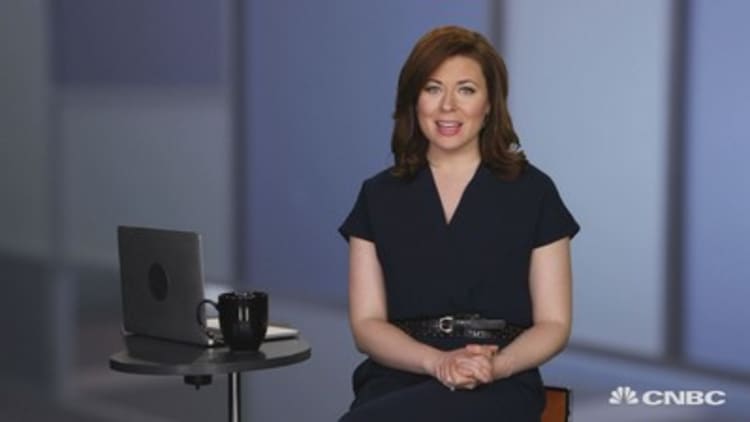Every dollar counts when it comes to retirement savings.
A little more than half of working-age households are at risk of being unable to maintain their current standard of living in retirement, according to the latest National Retirement Risk Index measurement from the Center for Retirement Research at Boston College.
If you're among them, you probably know it: Researchers found 57 percent of households have a realistic sense of whether they are likely to meet their retirement goals.
But small cuts can make a big difference in how well you're able to stay on track. Fees, for example. Over a career, retirement account fees of 1 percent versus 0.25 percent would cost a typical worker an extra $96,027, according to a 2014 report from the Center for American Progress. For a high-income worker, that fee gap tallies $236,114.
Here are three more missteps that can eat into savings:
1) Early withdrawal penalties
Many workers say they are expecting to work past age 70, if they retire at all. Planning an earlier exit? Better strategize to avoid the 10 percent early withdrawal penalty, which may apply before age 59½ if you take money out of a traditional individual retirement account, or before age 55 if you draw from a traditional 401(k) and other workplace retirement plan.

Experts say options might include funding or converting to a Roth IRA, or taking advantage of an IRA penalty exception allowing for "substantially equal periodic payments" under Rule 72(t). Or you could plan to draw from taxable accounts first.
"When you retire, using funds from a taxable account first and allowing tax-deferred money to continue to grow for a few more years, when you could potentially be in a lower tax bracket anyway, can be very impactful," said Melissa Sotudeh, a certified financial planner with Halpern Financial in Rockville, Maryland.
Read more: Three retirement savings strategies to use if you plan to retire early
2) Missed employer matches
About 20 percent of workers aren't saving enough for retirement to get the full match from their employer, according to reports from Fidelity and benefits administrator Alight Solutions. Young and low-wage workers are more apt to miss out, but even some workers who are older or draw a big salary fall short. (See charts below.)
Employee savings by income
| Salary | Below match threshold | At match threshold | Above match threshold |
|---|---|---|---|
| $20,000-$39,000 | 35% | 35% | 30% |
| $40,000-$59,000 | 26% | 33% | 41% |
| $60,000-$79,000 | 20% | 31% | 50% |
| $80,000-$99,000 | 14% | 29% | 57% |
| $100,000+ | 8% | 22% | 69% |
Source: SOURCE: Alight Solutions
Employee savings by age
| Employee age | Below match threshold | At match threshold | Above match threshold |
|---|---|---|---|
| 20-29 | 29% | 38% | 34% |
| 30-39 | 25% | 34% | 41% |
| 40-49 | 21% | 29% | 50% |
| 50-59 | 16% | 25% | 58% |
| 60+ | 14% | 26% | 61% |
Source: SOURCE: Alight Solutions
Even a little bit of money left on the table each year — Wells Fargo values the average worker's lost match at $750 — can add up to a nearly six-figure sum over the course of your career. Workers should confirm plan details and the match formula to make sure they aren't missing out.
"Double-check that you are getting the full amount," said Rob Austin, director of research at Alight Solutions.
Read more: 1 in 5 workers misses out on this free money for retirement
3) Expensive HSA fees
Health savings accounts have been gaining traction for their triple tax benefits: tax-deductible contributions, tax-free growth and tax-free withdrawals used for qualified medical expenses. (They can be a powerful retirement savings strategy, too.)
But a recent Morningstar assessment of 10 large HSAs found that account maintenance fees vary widely, which could hurt investors using them to cover current health expenses. (See chart below.) Also, providers aren't always transparent about investment fees. It pays to compare your account options carefully, with an eye to how you will use the account.
"Account maintenance fees are the most important factor in choosing an HSA if you plan on using it as a spending vehicle," Morningstar senior analyst Leo Acheson told CNBC. "Because interest rates are low, maintenance fees have a much larger impact on balances than rates for the average account holder."
Read more: Watch out for high fees hiding in your health savings account


